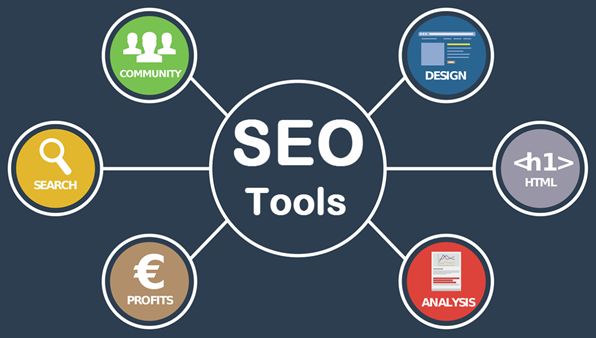SEO ( Search Engine Optimization ) is a key digital marketing skill. It can boost a website’s visibility and drive traffic. If you’re a beginner wanting to learn SEO, or a pro looking to improve your skills, many resources can help. This article will guide you in mastering SEO. It will cover the basics, tools, and tips for success.
What is Search Engine Optimization (SEO)?
SEO is optimizing a website to improve its ranking on search engine results pages (SERPs). This involves enhancing its content, structure, and user experience. SEO best practices help businesses attract more organic traffic. They can increase visibility and improve conversion rates.
Why Learn SEO?
-
HighSEO is optimizing a website to improve its ranking on search engine results pages (SERPs). This involves enhancing its content, structure, and user experience. SEO best practices help businesses attract more organic traffic. They can increase visibility and improve conversion rates.
Demand for SEO Skills: Search Engine Optimization is a core component of digital marketing strategies. All industries seek skilled SEO experts to boost their online presence.
-
Jobs: SEO skills can lead to roles like SEO specialist or digital marketer. They are also good for content manager positions.
-
Cost-Effective Marketing: SEO saves businesses on ads by driving free traffic.
-
Scalable Skill: Once you master SEO, you can use it anywhere.
Steps to Learn SEO
1. Understand the Basics
Start by learning the fundamental concepts of SEO:
-
On-page SEO is about optimizing your site’s content, meta tags, headers, and keywords.
-
Off-Page SEO: It includes link-building and social media work. These boost a website’s authority.
-
Technical SEO: It optimizes a site for search engine crawlers. It addresses site speed, mobile-friendliness, and structured data.
-
Keyword Research: Learn to find and use keywords to target your audience.
2. Use online resources and courses.
Several free and paid resources can help you gain a solid understanding of SEO:
-
Google’s SEO Starter Guide: A free, detailed guide from Google that explains the basics of SEO.
-
Moz’s Beginner’s Guide to SEO: It’s a favorite in the industry. It’s comprehensive and great for beginners.
-
HubSpot Academy: Offers free courses on SEO and content marketing.
-
Coursera and Udemy: Provide structured SEO courses taught by industry experts.
3. Learn SEO Tools
Familiarize yourself with SEO tools that can simplify and enhance your learning:
-
Google Analytics: Understand your website’s traffic, user behavior, and conversion rates.
-
Google Search Console: Check your website’s performance in search results and fix issues like indexing errors.
-
Ahrefs: Analyze backlinks, research keywords, and track competitors.
-
SEMrush: Perform keyword research, site audits, and competitive analysis.
-
Yoast SEO: A WordPress plugin that helps optimize on-page SEO.
4. Practice Hands-On
The best way to learn SEO is by doing:
-
Start a Blog: Create a blog and apply SEO techniques to optimize your content and structure.
-
Analyze Competitors: Study the websites of higher-ranking competitors.
-
Do Keyword Research: Use Ubersuggest or Google Keyword Planner. They can find niche keywords.
-
Create content that features a wealth of keywords and offers a positive experience for users.
-
Build Backlinks: Contact other websites to get links to your content. This will improve your site’s authority.
5. Stay Updated
SEO is a fast-changing field. Search engines, like Google, often update their algorithms. Stay informed by:
-
Following industry blogs like Search Engine Journal, Neil Patel, and SEMrush is important.
-
Subscribing to newsletters and podcasts dedicated to SEO.
-
Participating in online communities and forums to discuss trends and challenges.
6. Gain certifications
Certifications add credibility to your résumé and prove your expertise.
-
Google Analytics Individual Qualification
-
HubSpot Content Marketing Certification
-
SEMrush SEO Toolkit Course
7. Work on real projects.
Apply your knowledge to real-world projects to gain practical experience. Offer freelance SEO services. Or, collaborate with small businesses. You could also volunteer for non-profits to optimize their websites. Building a portfolio showcasing successful projects will enhance your job prospects.
Tips for Success in Learning SEO
-
Be patient: SEO results take time. Consistent effort and learning will lead to eventual rewards.
-
To succeed in SEO, you need high-quality content. Your site must provide a seamless user experience.
-
Experiment and Learn: Test different strategies to see what works best for your goals.
-
Stay analytical: Use data and insights to refine your approach and improve results.
Common Mistakes to Avoid
-
Keyword stuffing: Overloading content with keywords can lead to penalties.
-
Design your website for mobile devices to attract a larger audience.
-
Neglecting User Experience: Rank fast-loading pages and intuitive navigation.
-
Overlooking Analytics: Conduct frequent checks of performance metrics to identify areas for improvement.
Conclusion
Learning SEO is rewarding. It can lead to great job opportunities. It will also improve your digital marketing skills. Learn the basics, use tools, and practice. This will give you a strong SEO foundation. Stay curious. Adapt to changes in the industry. Keep honing your skills. This will make you a successful SEO professional. In today’s digital-first world, SEO is key. It can boost your career and your website’s performance. So, it is worth mastering.
